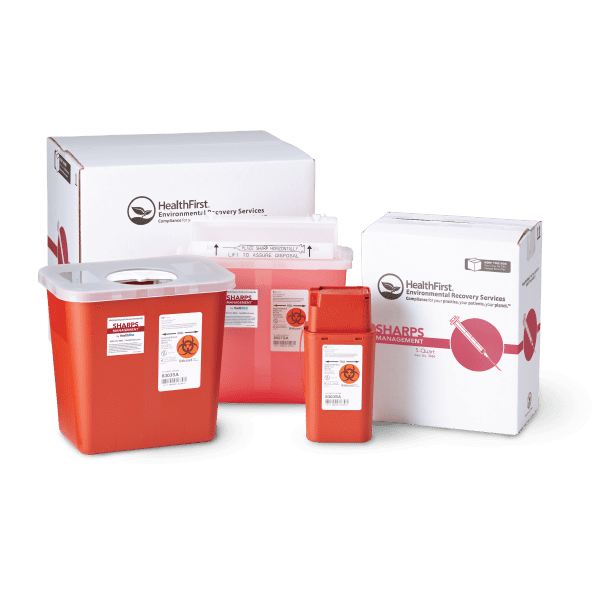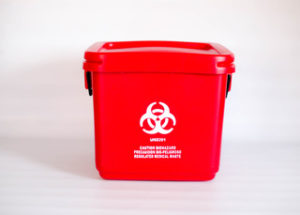The Importance of Proper Waste Disposal Practices
The monitoring of waste is an essential aspect of ecological stewardship that often goes unnoticed in our every day lives. Correct garbage disposal techniques are not just a matter of comfort however are important for protecting our communities and public health and wellness. From the effects of incorrect waste disposal on our environment to the long-lasting implications for future generations, the importance of taking on sustainable waste monitoring practices can not be overemphasized. By exploring the environmental influence of reckless waste disposal, the advantages of reusing campaigns, and the importance of community involvement in waste decrease efforts, a deeper understanding of why correct waste disposal techniques are critical emerges.
Ecological Effect of Improper Disposal
Inappropriate disposal of waste poses a significant danger to the atmosphere because of its detrimental results on ecological communities and human health and wellness. When waste is not appropriately taken care of, it can cause air pollution of the water, air, and soil, triggering injury to various plant and pet species. click here. Chemicals and toxic substances from improperly disposed waste can permeate into the ground, contaminating groundwater sources and affecting the wellness of both wildlife and human beings
Moreover, the buildup of waste in landfills creates greenhouse gases like methane, adding to environment modification and worldwide warming. Inappropriate disposal methods also result in littering, which not just degrades the aesthetic worth of the atmosphere yet can additionally hurt wildlife with ingestion or entanglement.
To alleviate these environmental effects, it is crucial for areas and individuals to embrace appropriate waste disposal practices such as reusing, composting, and responsible contaminated materials disposal. By taking these actions, we can assist protect communities, preserve all-natural sources, and safeguard human health and wellness for current and future generations.
Advantages of Recycling Programs
Regularly joining recycling programs supplies many advantages for both the atmosphere and society overall. Among the essential advantages of recycling is the conservation of all-natural sources. By recycling products such as paper, plastic, glass, and steel, less resources require to be extracted from the earth, bring about reduced logging, mining, and drilling activities. This preservation of sources not just aids in preserving eco-friendly balance but also adds to sustainable advancement.
Furthermore, recycling plays a vital role in reducing power usage and greenhouse gas discharges. The production of products from recycled products generally requires much less power compared to making from virgin sources - medical waste removal. Consequently, the carbon footprint related to the production process is dramatically reduced, assisting in the battle versus environment modification
Additionally, reusing programs create job chances in the reusing industry, promoting financial development and social well-being. By motivating the recycling and reuse of materials, these programs sustain a round economy that decreases waste generation and optimizes resource performance, ultimately bring about a cleaner, greener future for generations ahead.
Contaminated Materials Administration Standards
Implementing reliable contaminated materials management standards is crucial for reducing ecological and health risks related to the inappropriate disposal of unsafe products - click here. Proper handling, therapy, and disposal of hazardous waste are important to stop contamination of dirt, water resources, and air
One key standard appertains labeling of dangerous waste containers to make certain safe handling and transport. In addition, facilities must comply with strict storage space requirements to avoid leaks, spills, or crashes that might endanger human wellness and the environment. Regular training programs for staff members on harmful waste monitoring practices are also important to ensure compliance with guidelines and promote a society of safety.
In addition, contaminated materials needs to be segregated based upon its properties to stop chemical responses that could result in harmful scenarios. Carrying out a thorough waste radar can help check the activity of dangerous products from generation to disposal, making certain openness and accountability. By adhering to these guidelines faithfully, organizations and sectors can contribute to a more secure and cleaner setting for future and existing generations.
Area Participation in Waste Decrease
To properly attend to the environmental and health risks related to contaminated materials administration, engaging the area in waste decrease initiatives is extremely important. Area participation plays an essential function in promoting lasting waste administration techniques and promoting a society of ecological obligation. By informing residents about correct waste partition, recycling, and composting methods, neighborhoods can significantly lower the amount of waste sent out to land fills, thereby minimizing ecological contamination and conserving natural sources.
Area engagement in waste decrease programs likewise helps in increasing understanding regarding the importance of waste reduction and motivates individuals to take on environment-friendly behaviors in their day-to-days live - medical waste removal service. Collective efforts between regional authorities, waste monitoring companies, and community members can result in the application of effective waste reduction strategies tailored to the particular demands of each community or community
Moreover, area engagement cultivates a sense of ownership and responsibility amongst residents, empowering them to take aggressive steps in the direction of lowering waste generation and promoting a cleaner, much healthier environment for existing and future generations. By collaborating towards usual waste decrease objectives, communities can make a substantial impact on mitigating the damaging impacts of improper garbage disposal practices.

Future of Sustainable Waste Practices
The evolution of lasting waste practices is vital for advancing ecological stewardship and source preservation in the coming years. As the worldwide population continues to expand, so does the amount of waste created (medical waste removal near me). Standard waste disposal methods, such as landfilling and incineration, are no more lasting in the lengthy term because of their significant environmental impacts. Moving on, the future of lasting waste practices depends on accepting a round economic situation strategy, where sources are recycled, recycled, or repurposed to reduce waste generation.
Technological innovations play a key role in shaping the future of lasting waste practices. Advanced waste sorting and reusing technologies can help enhance the efficiency of waste administration processes, permitting the healing of valuable resources from waste streams. Additionally, the fostering of naturally degradable materials and composting methods can help in reducing the amount of natural waste winding up in garbage dumps, thus mitigating greenhouse gas exhausts.
Furthermore, promoting customer awareness and education on proper waste segregation and disposal techniques is vital for driving behavioral change towards sustainability. By cultivating a society of waste decrease, reuse, and recycling, communities can collectively add to a cleaner and healthier environment for future generations.

Conclusion
Finally, correct waste disposal practices are essential for lessening ecological impact and advertising sustainability. By executing recycling programs, taking care of contaminated materials correctly, and motivating area participation in waste decrease efforts, we can work in the direction of a cleaner and healthier atmosphere. It is essential for businesses, federal governments, straight from the source and individuals to prioritize lasting waste practices for the future health of our earth.
.jpg)
From the consequences of incorrect waste disposal on our atmosphere to the lasting effects for future generations, the importance of adopting sustainable waste monitoring methods can not be overstated. By exploring the environmental influence of irresponsible waste disposal, the advantages of reusing efforts, and the value of community interaction in waste decrease efforts, a much deeper understanding of why proper waste disposal practices are critical emerges.
By educating homeowners about proper waste segregation, reusing, and composting techniques, communities can dramatically decrease the quantity of waste sent out to garbage dumps, therefore lessening environmental contamination and preserving all-natural sources. (click here)
Moving ahead, the future of lasting waste methods lies in embracing a round economic situation approach, where resources are reused, recycled, or repurposed to decrease waste generation.
Advanced waste sorting and reusing modern technologies can assist improve the performance of waste management procedures, allowing for the recuperation of useful resources from waste streams.